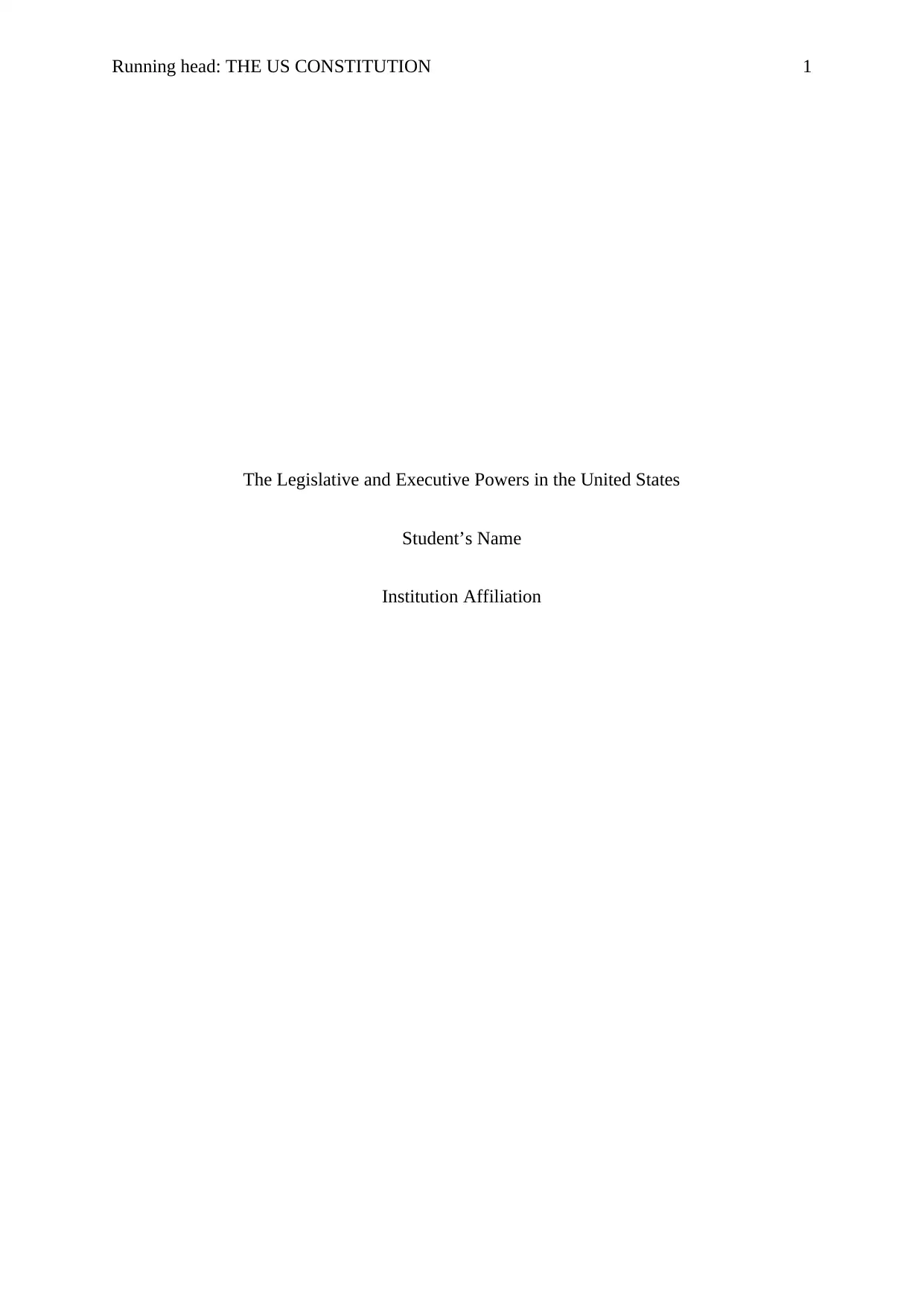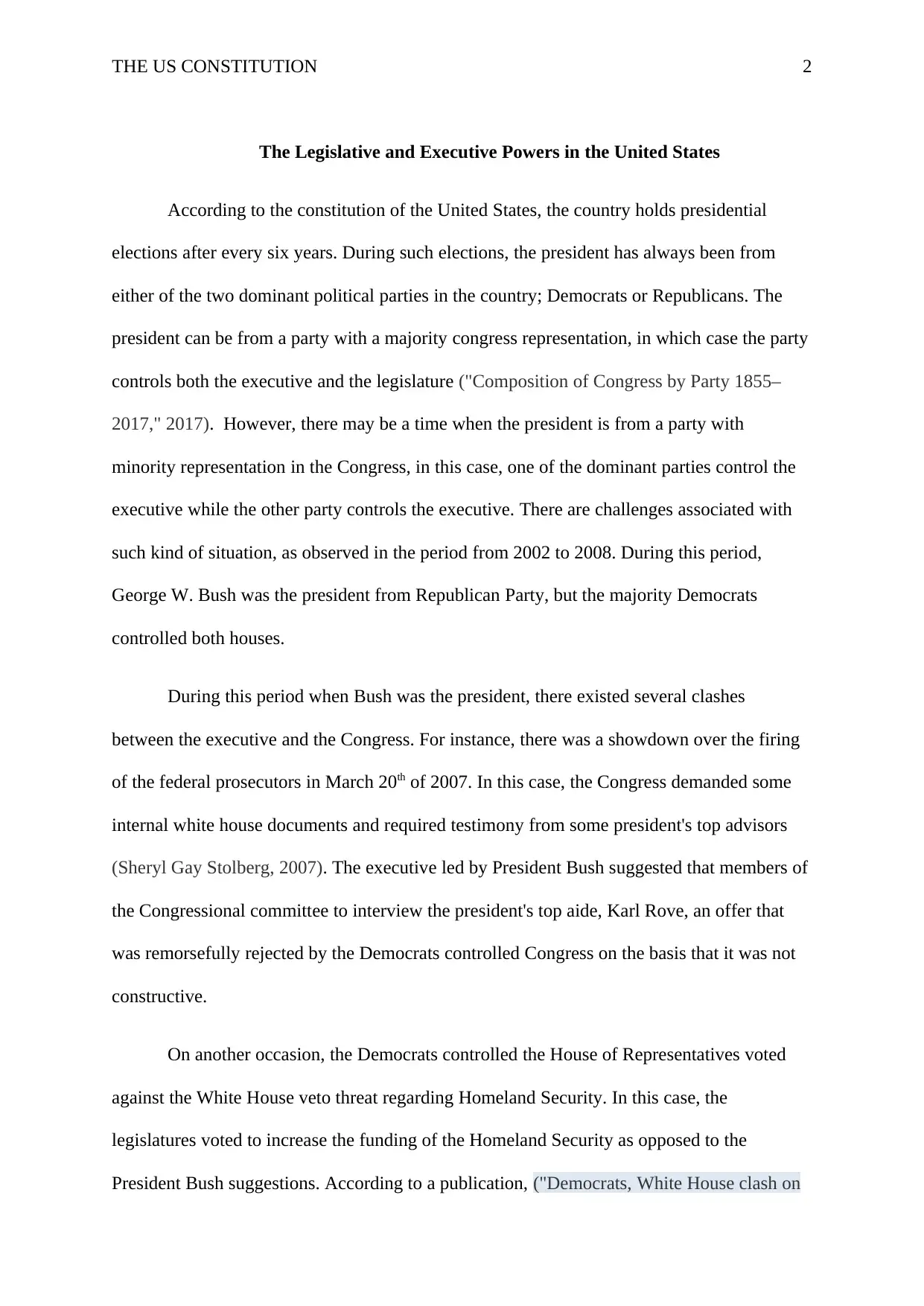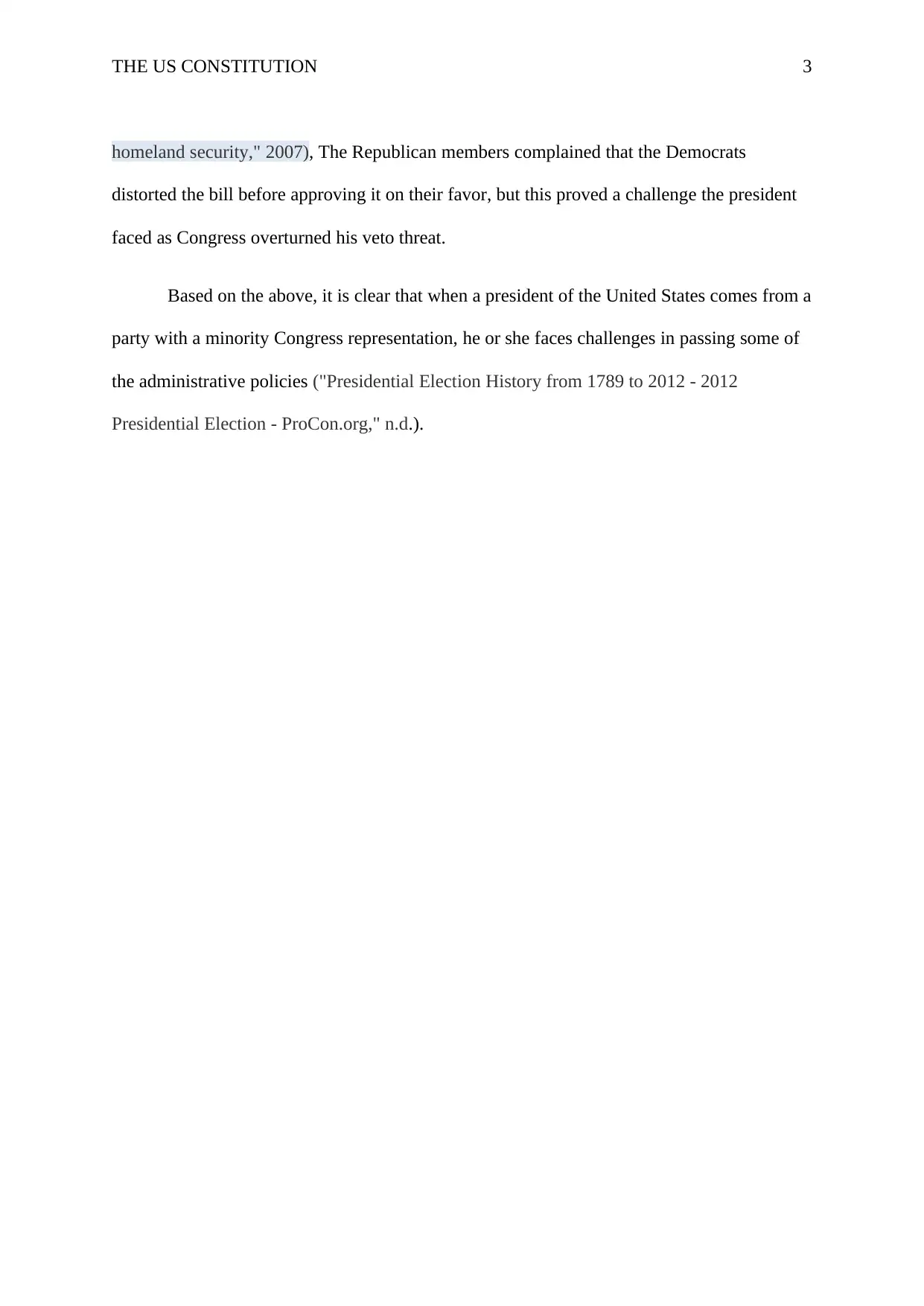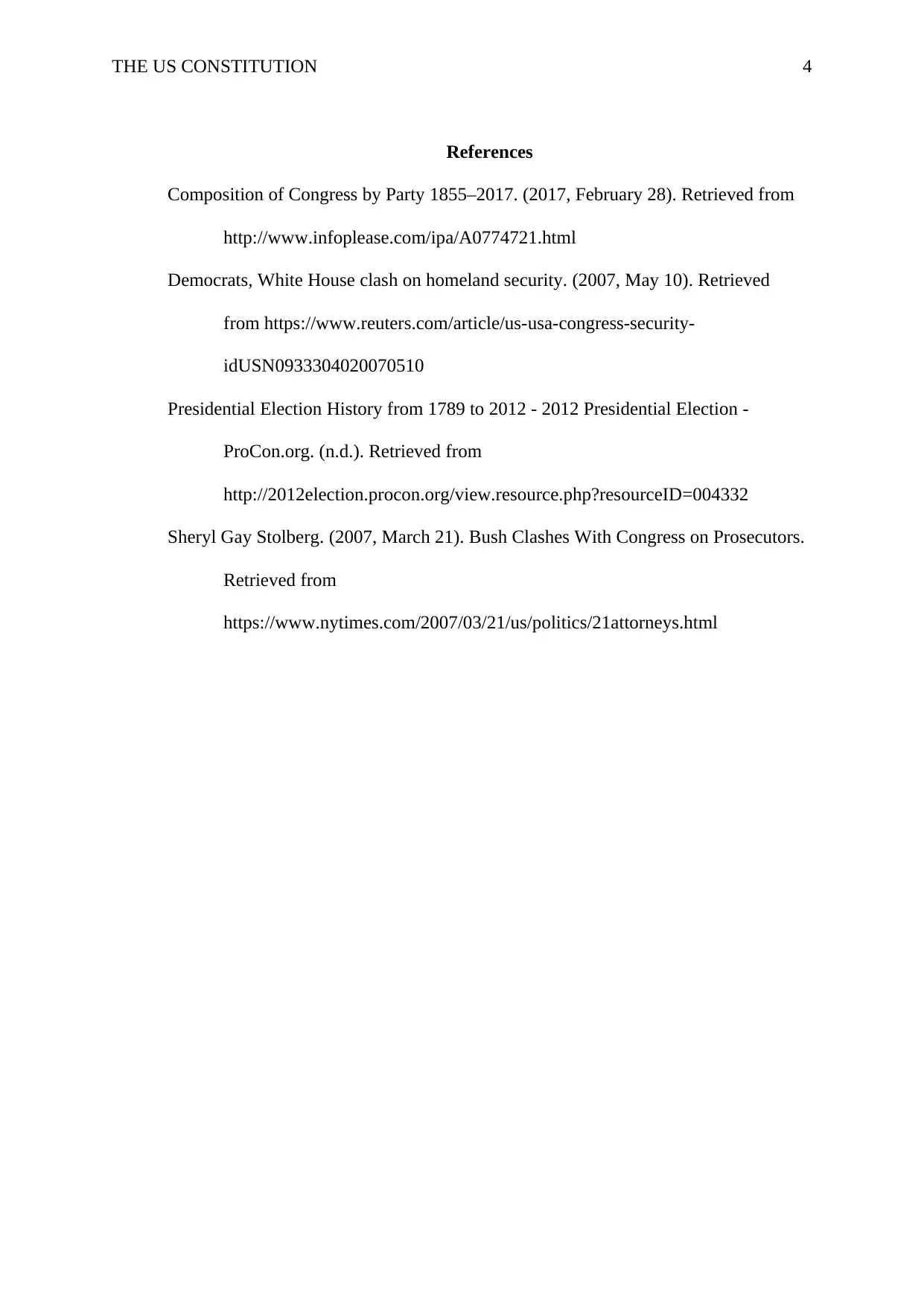Challenges of Legislative & Executive Powers in the US Constitution
VerifiedAdded on 2023/06/04
|4
|565
|421
Discussion Board Post
AI Summary
This discussion post examines the US Constitution's division of power between the legislative and executive branches. It focuses on the challenges that arise when the President and Congress are from opposing political parties, using the period from 2002-2008 as a case study. During this time, President George W. Bush, a Republican, faced clashes with the Democrat-controlled Congress, particularly regarding issues such as the firing of federal prosecutors and Homeland Security funding. The post highlights instances where Congress opposed the President's policies, demonstrating the difficulties a president faces in passing administrative policies when their party lacks a majority in Congress. The post references historical data on party representation in Congress and presidential election results, providing context for understanding the dynamics of power and the impact of divided government on policy-making in the United States.
1 out of 4






![[object Object]](/_next/static/media/star-bottom.7253800d.svg)